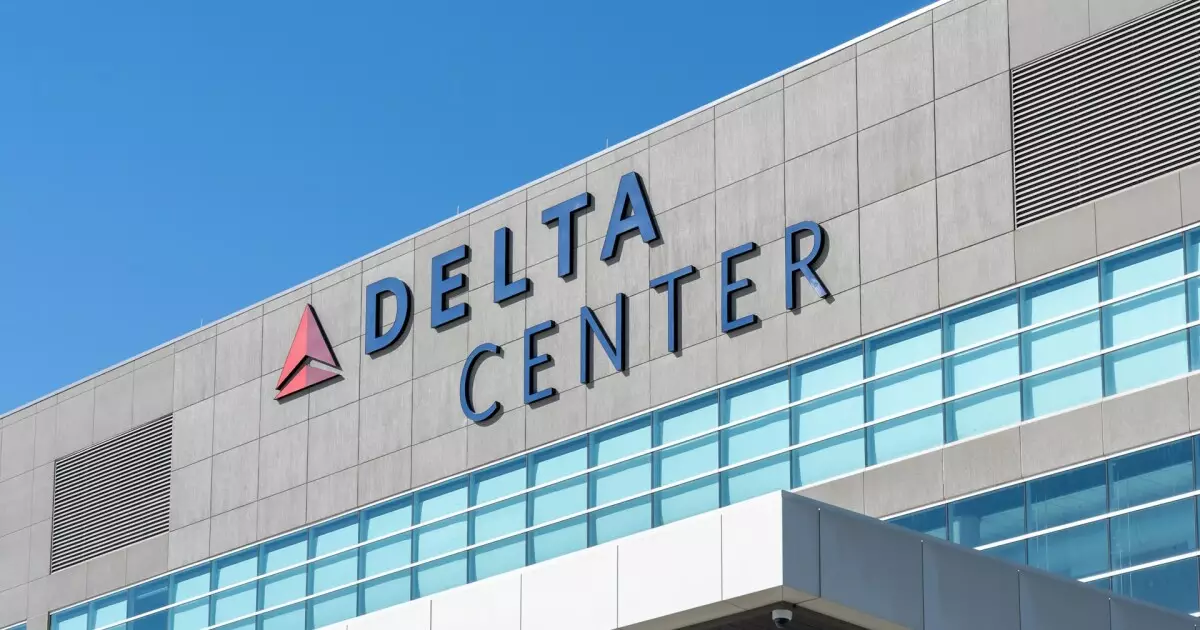Salt Lake City has recently embarked on a significant financial venture aimed at revitalizing its downtown area. A city council decision late Tuesday paves the way for the issuance of bonds, potentially amounting to $900 million, specifically targeted at renovating a major league sports arena and developing an accompanying downtown district. This initiative is more than just a concrete investment; it represents a broader vision for urban renewal that seeks to blend economic growth with community engagement.
To finance this substantial project, the city has approved a modest increase in the sales tax by 0.5%, beginning January 1. This adjustment, while incremental, is anticipated to generate an impressive $1.2 billion over the next three decades. Crucially, the tax hike carefully excludes necessities like groceries, ensuring that the most vulnerable residents are not disproportionately affected. A unique feature of this financing approach springs from a law enacted in 2024 that permits such debt financing, providing a structured framework for fiscal responsibility.
Moreover, a newly formed Revitalization Zone Committee has endorsed this agreement, reflecting a strategic shift towards long-term community investment. It’s not just about financial returns; city officials view this as an opportunity to enhance public spaces and foster local culture. City Attorney Katie Lewis referred to this deal as the foundation for a lasting relationship between the city and the new sports entities, signifying a commitment to both economic development and community well-being.
As with any major municipal initiative, public opinion is diverse. The city council meeting was reflective of this, with discussions provoking both excitement and skepticism from the community. Some residents raised concerns regarding the potential implications of increased taxation and the prioritization of sports ventures over other community needs, while others voiced support for the anticipated economic revitalization.
Former Salt Lake City Mayor has proposed a public referendum on the deal, emphasizing the need for public scrutiny of such momentous financial commitments. This highlights a vital aspect of civic engagement in public policy; transparency and community input are essential in legitimizing administrative decisions. Council Chair Victoria Petro encapsulated this sentiment by advocating for ongoing vigilance in monitoring the implementation of the agreement, suggesting that accountability is key to ensuring that the project serves its intended purpose of rejuvenating the city.
From a strategic perspective, the acquisition of the Delta Center by Smith Entertainment Group is poised to transform the local sports landscape. With the Utah Jazz and the newly branded Utah Hockey Club calling the arena home, there is an undeniable potential for increased foot traffic and dynamic community engagement in the downtown area. This project is envisioned not just as a sports venue but as a cultural hub that could invigorate local businesses and foster a stronger sense of community.
Salt Lake City’s ambitious financial maneuver aims to bridge urban development and sports culture. While there are challenges to be navigated, the proposed revitalization offers a model for how cities can leverage public-private partnerships to catalyze enduring economic growth and social cohesion. As this agreement takes shape, the eyes of not only Salt Lake City but other municipalities will be watching closely, considering how they might adapt this model for their own needs.

